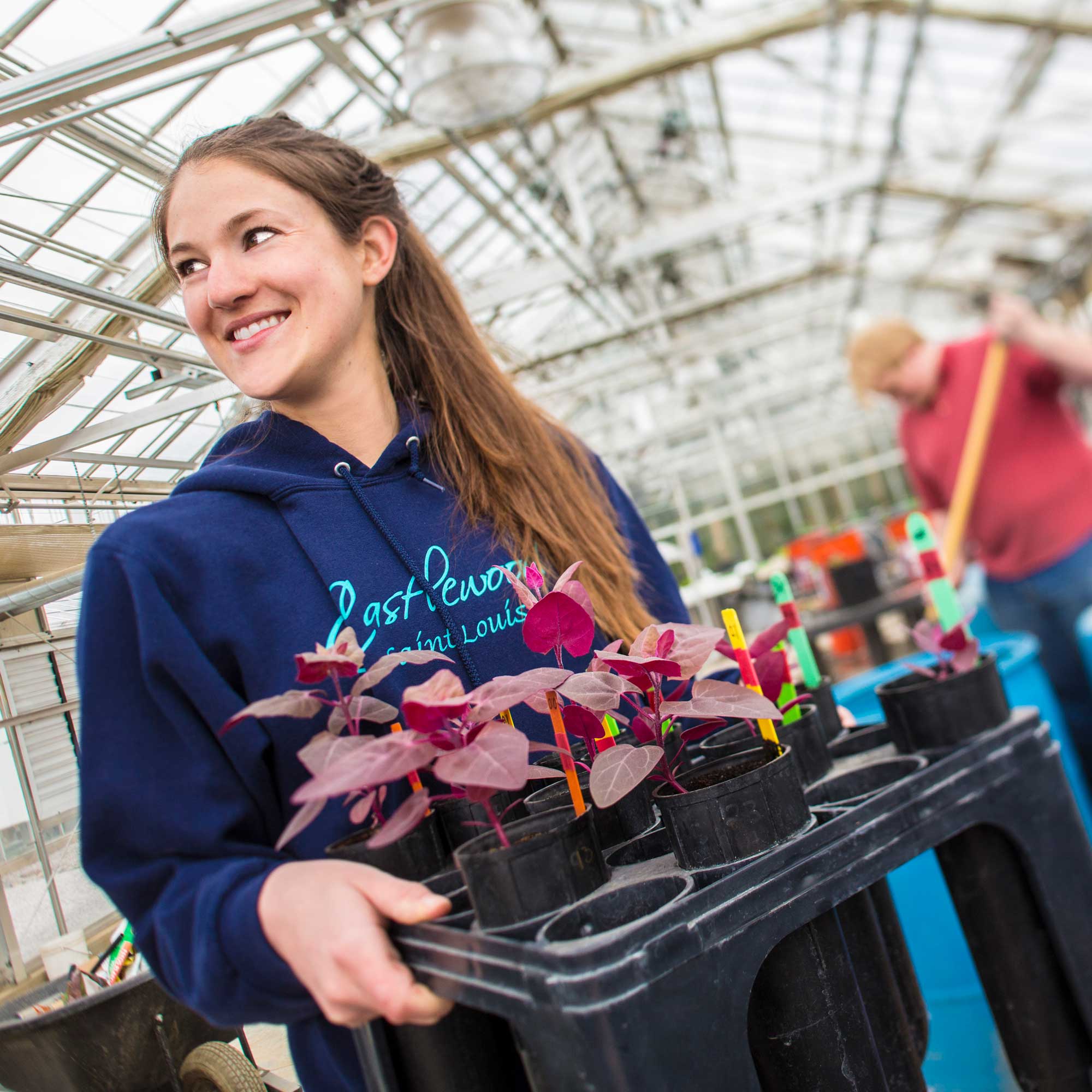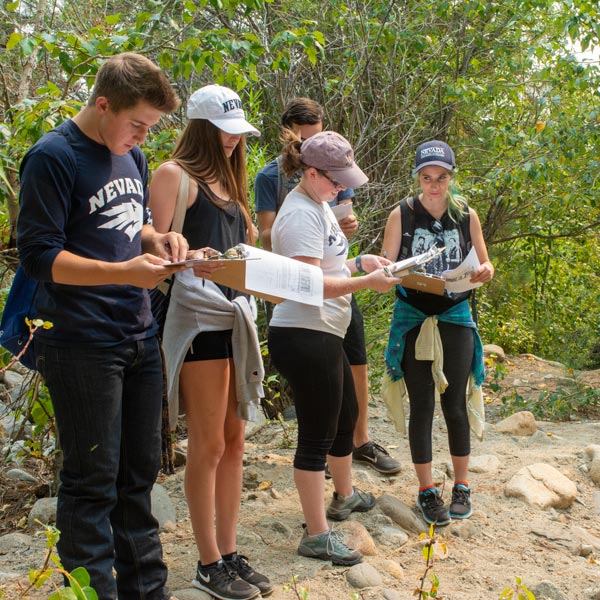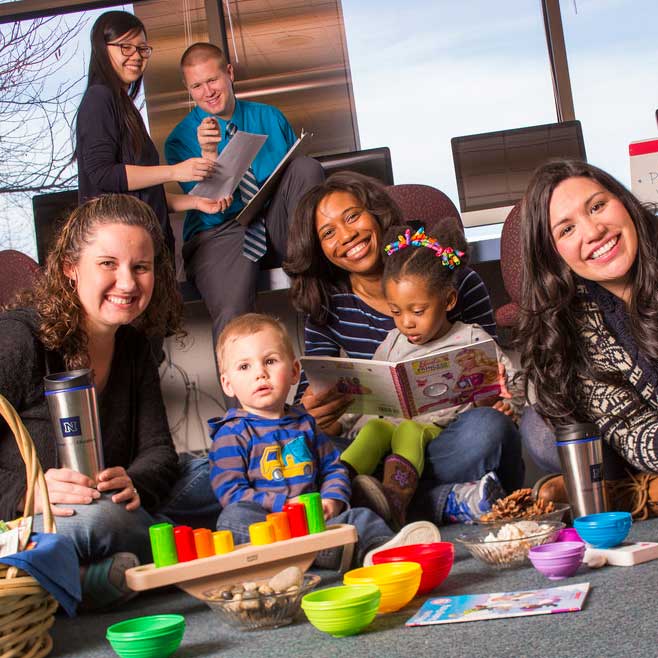In this edition
- College researcher aims to improve sorghum hybrids for dairy cattle feed
- SACNAS provides opportunities for (old) new ideas in science
- Nevada-raised wool products and jerky in Nevada Wolf Shop for holiday gifts
- School district meeting highlights new Extension nutrition programming
- Nutrition specialist brings global approach to managing chronic health conditions
About our College
A founding college of the University, we have a long tradition of excellence in teaching, research and engagement programs that benefit the health and economic vitality of Nevada. We offer programs in:
- agriculture, horticulture, rangeland and veterinary sciences
- biochemistry and molecular biology
- children, youth and families
- community and economic development
- health and nutrition
- natural resources and environmental science
Cure post-holiday doldrums at KIDS University!
KIDS U offers a winter break camp for children ages 7 - 9, 8:30 a.m. - 4 p.m., Jan. 2 - 5, at Redfield Campus. Zen Art: Using the Right Side of Your Brain lets kids tap into their inner artists as they paint, draw, craft and create art.
Sign up for Kids U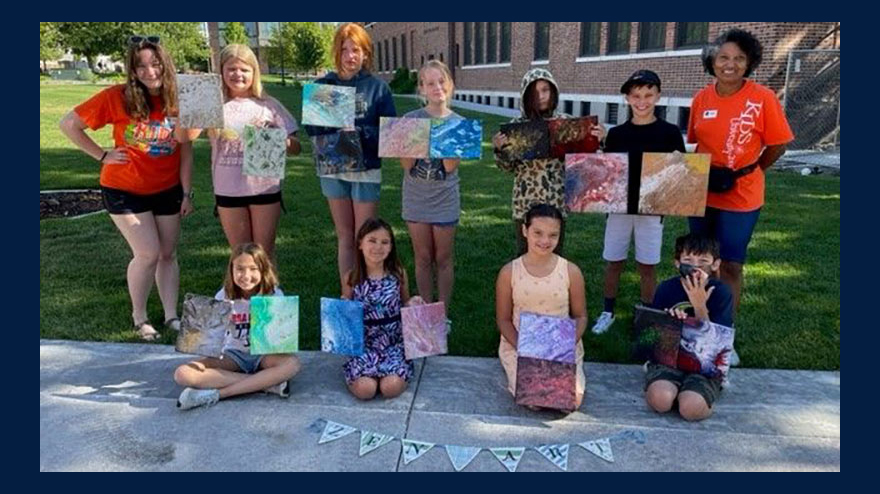
College researcher aims to improve sorghum hybrids for dairy cattle feed
Associate Professor Melinda Yerka develops one of the largest and most nutritious sorghum hybrids
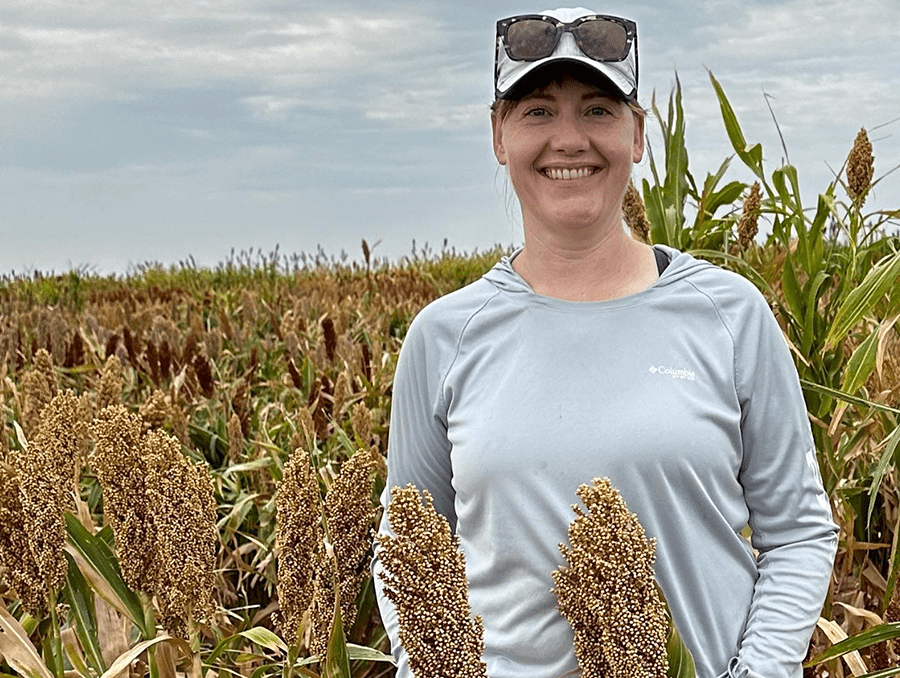
Associate Professor Melinda Yerka, with the College’s Department of Agriculture, Veterinary & Rangeland Sciences and Experiment Station unit, showcases one of her malting and brewing sorghum varieties.
Preliminary research by Associate Professor in the College Melinda Yerka suggests that she has made a major development in global sorghum cultivation – varieties that are more nutritious to dairy cows, are well-adapted to Nevada and California, and have a more adaptable harvest window than existing sorghums.
Yerka’s work was designed to develop sustainable and resilient alternatives in dairy cow nutrition to address the shortcomings of current dairy feeds that struggle with hot, arid conditions and need more water in the West. Yerka hopes her sorghums will also decrease producers’ need to rely on feed imports from other states. Her new varieties that combine large, soft seeds with either high protein or high starch contents could rewrite the rules of how the nutrition profile of sorghum compares with corn and alfalfa.
Providing farm-to-table seeds
To make the publicly available varieties Yerka developed commercially competitive, she founded Yerka Seeds in collaboration with the University’s College of Business. Yerka Seeds will:
- Collaborate with dairy farms to prove the new varieties are competitive for dairy nutrition.
- Identify the best hybrids for distribution through Yerka Seeds to farmers.
- Connect consumers, maltsters and breweries to farmers growing the seeds for direct sales.
Addressing global food challenges
Yerka and her partners have recently begun collaborating with sorghum breeders at the International Maize and Wheat Improvement Center to expand her sorghums to less developed nations.
Yerka said, “Should the newly developed sorghums prove competitive with established feed crops, they will serve as a compelling showcase of sorghum's genetic potential in aiding global food and feed systems to adapt effectively to the challenges posed by climate change.”
Preserving family farms
“Making sorghum more competitive with corn and alfalfa in dairy nutrition could very well be a means for farmers in rural communities to maintain profitability and preserve generations of family farms.” – Associate Professor Melinda Yerka
SACNAS provides opportunities for (old) new ideas in science
A new community for Chicano/Hispanic and Native American STEM students officially arrives on campus
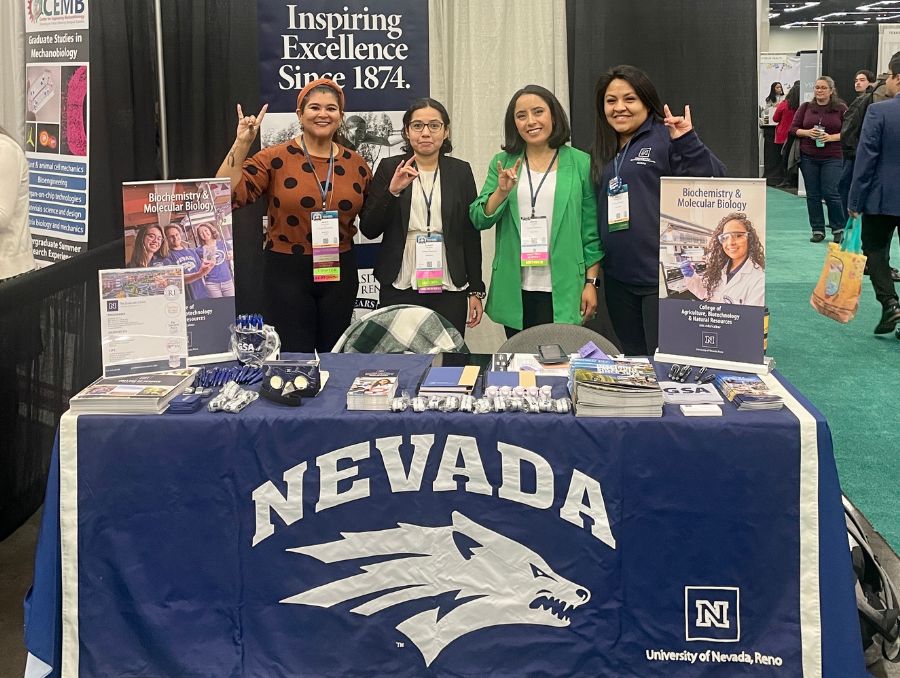
Left to right: Ricky Klafehn, Elisset Poveda, Rocio Olvera and Karla Hernández represented the University at the National Diversity in STEM Conference in Portland, Oregon.
Faculty and students from the University recently visited Portland, Oregon, for the National Diversity in STEM Conference, hosted by the Society for the Advancement of Chicanos/Hispanics & Native Americans in Science (SACNAS). The University attendees are part of the provisional SACNAS chapter on campus, and their conference travel was supported, in part, by the College.
“There were elders and founding members at this conference,” Ricky Klafehn, graduate president of the University’s SACNAS chapter, said. “So that was really wonderful, to see and hear from their perspective.”
Last fall, Klafehn reached out to Kari Emm, the College’s tribal student specialist. Emm put her in touch with Karla Hernández, who now directs the College’s Biotechnology Program. The three began efforts to create a SACNAS chapter on campus. Their recently recognized chapter is the first and only in Nevada.
The campus chapter welcomes all students and faculty who want to advance diversity in science. One of its goals is to talk about science in a way that reaches beyond Western science and includes Traditional Knowledge curated by Indigenous communities.
SACNAS spotlight | Undergraduate chapter president Paola Miramontes Gonzales
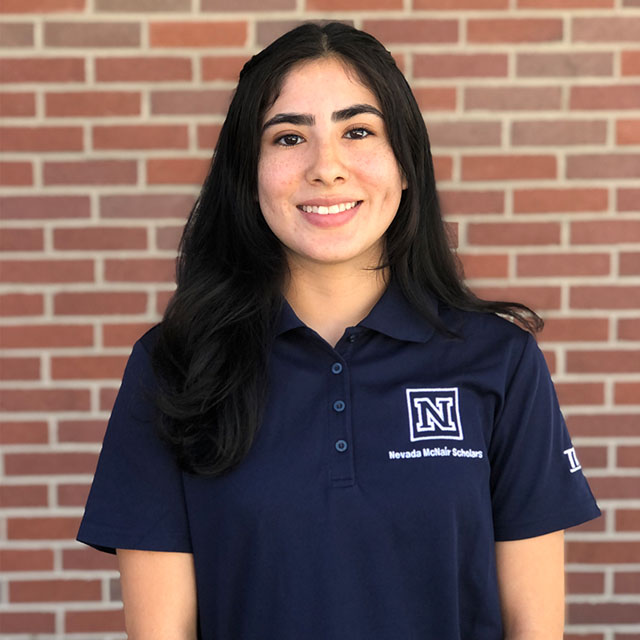
Paola Miramontes Gonzalez, the undergraduate president of the University’s SACNAS chapter, is an environmental science student and student researcher in the College, studying how urbanization impacts water quality.
She said, “Don’t be afraid to ask questions, talk to professors and put yourself out there. That is all it really takes to pursue your dreams and interests.”
Empowering the scientific community
“I really wanted to bring that community and that sense of pride and empowerment to the students at the University.” – Chapter President Ricky Klafehn
Nevada-raised wool products and jerky in Nevada Wolf Shop for holiday gifts
Community encouraged to do holiday shopping that supports student activities, education and research
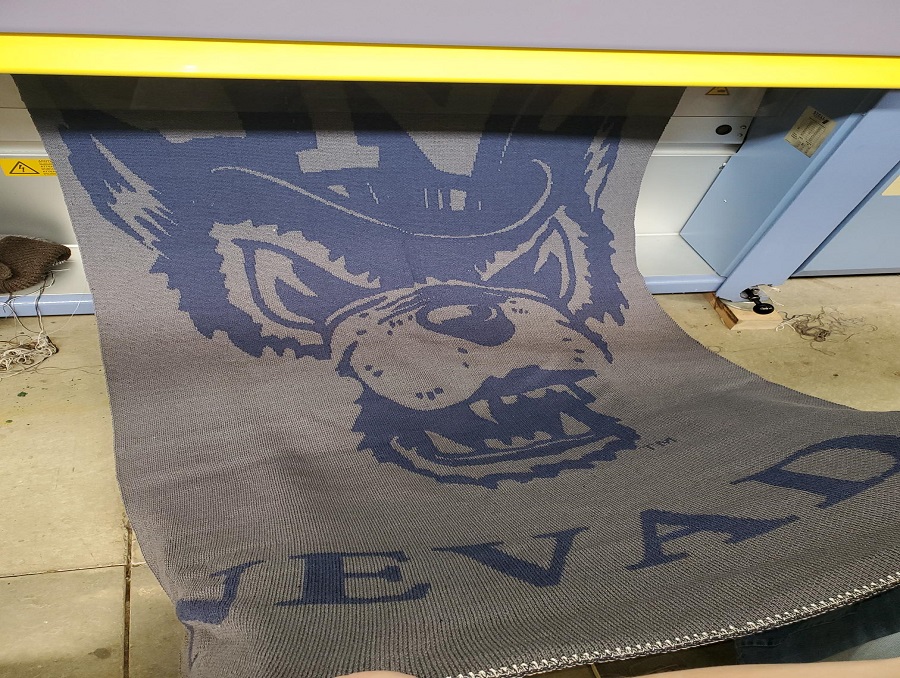
Wool products made from the College’s Rafter 7 Merino sheep, prized internationally for their fine, soft wool, are now available at the Nevada Wolf Shop on campus.
Just in time for holiday shopping, the University’s Nevada Wolf Shop has a stock of wool products from sheep and jerky from beef raised by the College. Not only do the products offer an opportunity to buy local, but sales support student activities, education and research.
Shop silky soft wool
Some of the wool products available include beanies, scarves, sweaters and blankets. Their silky, soft wool is from Rafter 7 Merino sheep raised by the College’s Great Basin Research & Extension Center in Eureka, a breed that the College’s Experiment Station developed more than 30 years ago, now prized internationally for its fine wool and meat. The sheep have adapted well over time to rangeland production and to producing fine wool in spite of the harsh Nevada climate.
Enjoy five jerky flavors
The beef for the jerky is from cattle raised in Reno, at the Experiment Station’s Main Station Field Lab, home of Wolf Pack Meats. Wolf Pack Meats partnered with a local business to make the jerky, which comes in five flavors – teriyaki, sweet & spicy, garlic, smokey BBQ, and black pepper & sea salt. The items are part of Wolf Pack Meats’ efforts to enhance its offerings of local meats and products to the community, which support the growth of its production capacity.
Providing local products from real-world programs
“We’re delighted to partner with the Nevada Wolf Shop to offer these products. It’s a great way to show what the University is doing and how our programs offer real-world experiences for our students. And, it provides the community with quality, locally produced products.” – Dean Bill Payne
School district meeting highlights new Extension nutrition programming
Carson City School District shows how the menu gets made, speaks on programs and apps to teach families about nutrition
Jessica Garcia, Nevada Appeal
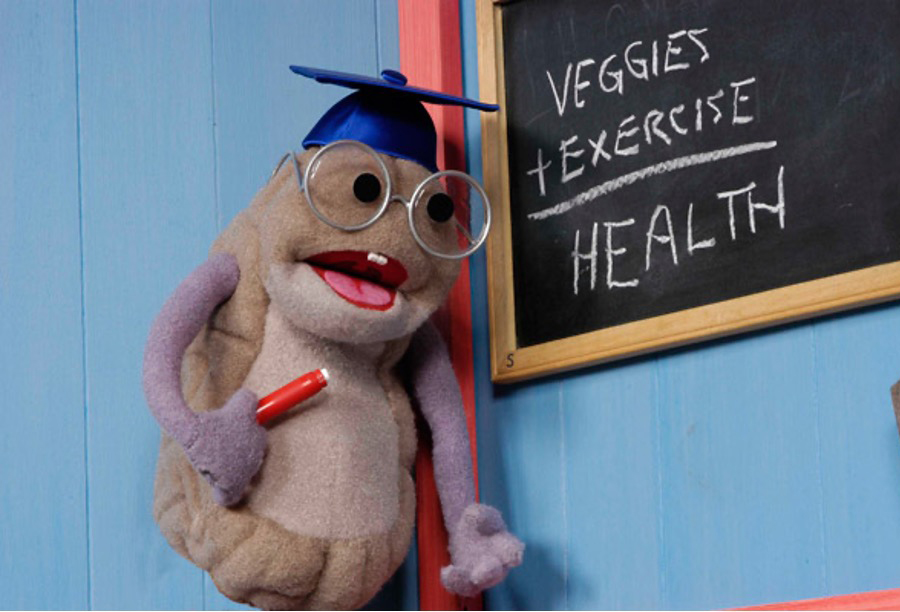
The district’s Nov. 15 meeting highlighted “The OrganWise Guys” programming that Extension is rolling out in school lunchrooms starting next month.
Nutrition Services directors from the Carson City School District wanted to show community members what makes a better meal for students. So, they put their teriyaki chicken and cheese pizza to the test during the Nov. 15 Professional Learning Community meeting at Carson High School. The regular discussions seek community engagement from local stakeholders to improve the district’s strategic plan and school priorities.
Nutrition Services Director Elizabeth Martinez and food service management company Chartwells’ Director of Dining Services John Worring create Carson City schools’ menus and comply with federal nutrition regulations. They spoke on current operations and the educational aspects to providing daily breakfast and lunch programs.
Martinez invited Celina Barajas-Madrigal, coordinator of Supplemental Nutrition Assistance Program Education (SNAP-Ed) Programs for Extension’s Carson City/Storey County Office, to speak to new programming available to 350 school-age youth in the district through Extension.
Extension is rolling out a six-week curriculum called “The OrganWise Guys” targeting third- through fifth-graders using organ characters to encourage healthy eating in school lunchrooms. The program will be introduced to fourth-grade teachers at Fritsch Elementary next month.
Leading youth nutrition education
“The spotlight at the meeting on the work that Carson City School District is doing with nutrition, including the partnership with Extension, was neat to see. I believe this partnership will be instrumental in leading Extension’s youth SNAP-Ed programming for Carson City, northern Nevada and the state. To everyone involved, I can’t say great job enough.” – Extension SNAP-Ed Program Manager Kylie Russell
Nutrition specialist brings global approach to managing chronic health conditions
Angeline Jeyakumar aims to drive healthy nutrition choices in Nevada

Angeline Jeyakumar joins the College as an Extension public health nutrition specialist and Department of Nutrition assistant professor.
The College has hired Angeline Jeyakumar as an Extension public health nutrition specialist and Department of Nutrition assistant professor. Jeyakumar, who will also conduct research as part of the College’s Experiment Station, will collaborate with public health experts statewide to develop community-based interventions targeting the reduction of chronic health conditions in Washoe County. Her immediate priority is to assess the distinctive risk factors of various chronic health conditions across age groups and to alter nutrition behaviors to mitigate risk factors.
For more than 20 years, Jeyakumar has researched and advocated for the improvement of child and maternal nutrition in underserved communities. Among her notable achievements is a comprehensive nutrition education module that she designed to combat iron deficiency among adolescent girls in the Pune district of western India. Her proactive approach emphasized the significance of promoting nutritional awareness before reproduction, recognizing it as a crucial step in breaking the cycle of undernutrition for future generations.
Reducing Nevadans’ disease risk
“Angeline brings a unique set of skills and experience to the department and Extension, and, thanks to the support she has received from Extension and the Experiment Station, the University can look forward to the development of new and innovative approaches to reducing chronic disease risk among Nevadans.” – Nutrition Department Chair Jamie Benedict
Innovating for Nevada
Our programs work together to make an impact
Our teaching, research and engagement programs are intertwined and complement one another. Faculty who teach on campus also conduct research as part of our Experiment Station, allowing students to learn about and participate in research. Extension faculty engaging with communities identify research needs, as well as join Experiment Station faculty to conduct research. Faculty on campus help to develop Extension programs in communities.
